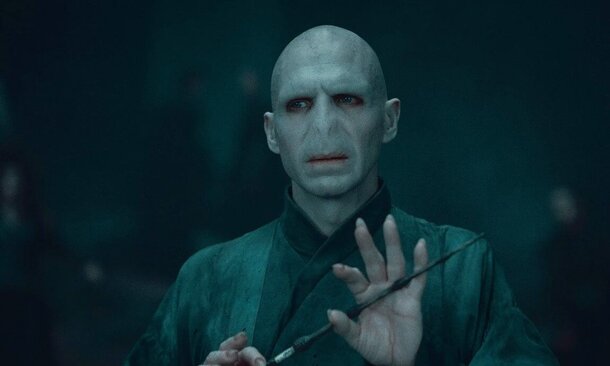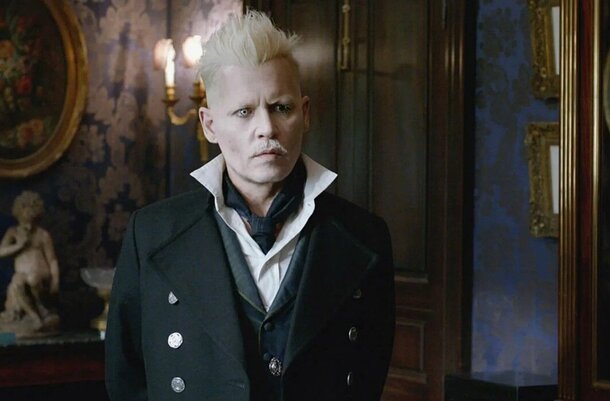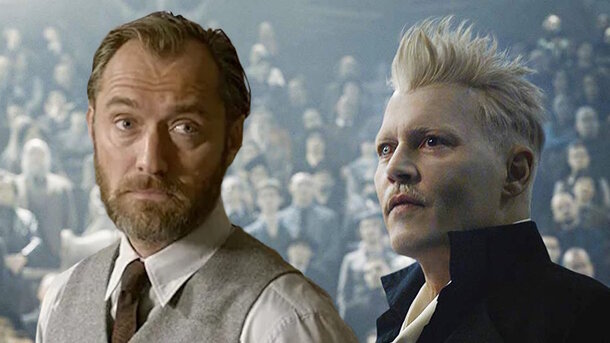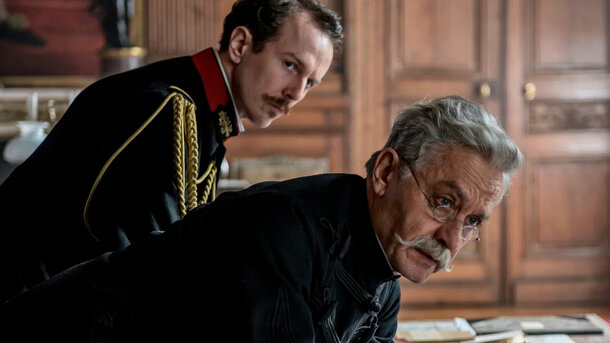When it comes to the greatest dark wizards in the Harry Potter universe, two names come to mind: Lord Voldemort and Gellert Grindelwald. Both sought dominance over the wizarding world and possessed extraordinary magical abilities, yet their methods and motivations were vastly different.
Voldemort’s greatest advantage was his immortality — he split his soul into multiple Horcruxes, making him nearly invincible. Grindelwald, the central figure of the Fantastic Beasts series, never pursued this path. While it might seem logical for him to seek such protection, Grindelwald had compelling reasons to avoid Horcruxes.
What Did Voldemort and Grindelwald Want?
Voldemort, born Tom Riddle, feared death from a young age. Even as a student at Hogwarts, he studied ways to extend his life, with Horcruxes becoming his ultimate safeguard against mortality. His ideology of blood purity and his army of Death Eaters were mere tools for his ultimate goal: eternal life.

Grindelwald, however, was a true revolutionary who sought to reshape the magical world. His vision was a new order where wizards ruled over Muggles, and he believed his cause was just. For Voldemort, immortality was the end goal, but for Grindelwald, power and control were paramount. This is one reason he never turned to Horcruxes.
Horcruxes Weakened the Wizard
Splitting the soul granted immortality but diminished magical strength. This was evident in Voldemort, who became less human and more mentally unstable with each Horcrux he created. His body transformed into a grotesque form, and while his magic remained formidable, it lacked the finesse seen in Dumbledore or Grindelwald.
Grindelwald couldn’t afford to lose any power. His empire was built on personal strength, and any weakening of his magic could be catastrophic. Unlike Voldemort, who relied on his followers for protection, Grindelwald was his own shield. Dividing his soul would have made him vulnerable and shattered his image as an all-powerful leader.
He Sought Other Paths to Immortality
Grindelwald was obsessed with the Deathly Hallows, particularly the Elder Wand, which granted unparalleled magical superiority. While Voldemort used Horcruxes out of fear of death, Grindelwald likely hoped to achieve eternal life and dominance through the Hallows.

He Was Overconfident
Grindelwald didn’t believe he had any real threats besides Dumbledore, and their magical pact prevented them from dueling. This overconfidence made him dismissive of additional safeguards like Horcruxes. He openly defied the Ministry of Magic, seized power in multiple countries, and feared no conspiracies or betrayals. Voldemort, on the other hand, was paranoid. He distrusted even his closest allies, constantly searched for traitors, and hid from his enemies. Grindelwald’s openness and confidence meant he saw no need for such protections.
He Didn’t Fear Death
Perhaps the most obvious reason: Grindelwald wasn’t afraid of dying. Voldemort’s terror of death drove every action he took, clinging to life even as his body decayed. Grindelwald, in contrast, accepted his fate and death without fear.
Conclusion
Grindelwald was just as powerful as Voldemort, but his priorities and motivations set him apart.










